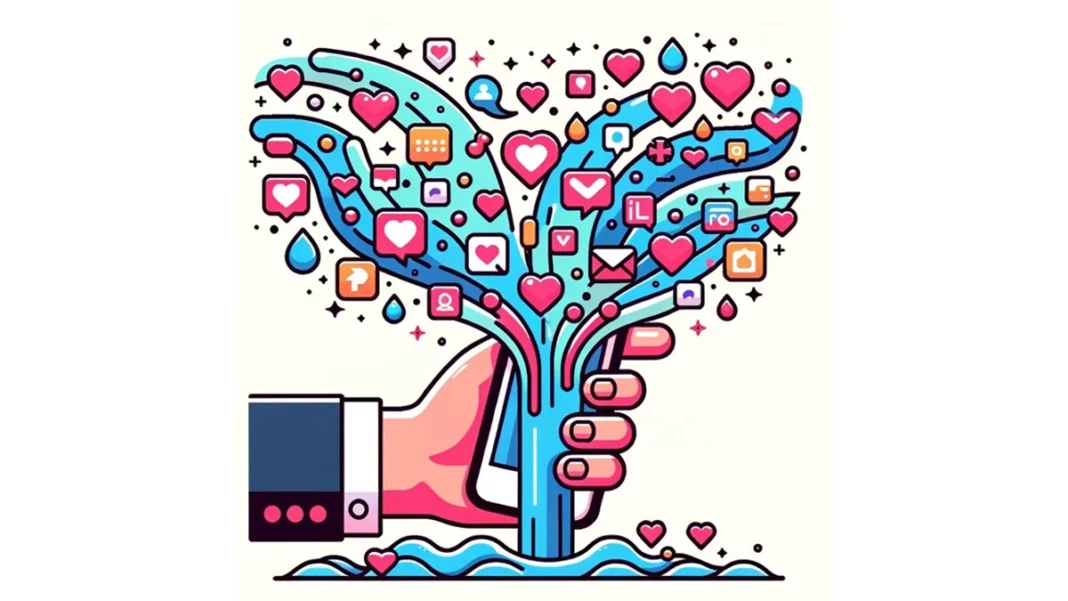Dating apps like Tinder, Bumble, and Hinge have become ubiquitous in our quest for love and companionship. However, an increasingly important question emerged: How do these platforms impact our mental health? This article will explore the complexities of this issue, shedding light on both the benefits and drawbacks of dating app usage.
Amid the buzz of dating apps, a new genre of applications is emerging: anti-dating apps. These platforms prioritize mental well-being and self-care, especially for individuals navigating breakups and heartaches. According to ExpressVPN, apps like Mend, for instance, act as a personal guide to help users heal post-breakup, offering advice, daily check-ins, and self-care strategies. Similarly, platforms like BumbleBFF and Atleto shift the focus from romantic connections to fostering platonic friendships and shared activity partners, respectively. By promoting emotional growth, self-awareness, and genuine connections, these anti-dating apps are redefining digital interactions and emphasizing the importance of mental health in relationships.
The Rise of Dating Apps
According to data from the Business of Apps, global revenue from dating apps rose from $1.6 billion in 2015 to $4.9 billion in 2022. This growth indicates an undeniable trend: people turn to dating apps in droves, especially during lockdown periods amidst the COVID-19 pandemic.
However, these figures only tell part of the story. Beneath the statistics, a darker narrative is emerging about the mental health implications of these platforms.
The Paradox of Connection and Disconnection
Interestingly, a study published in the International Journal of Environmental Research and Public Health highlighted a paradox. Even though dating apps provide more ways to connect, many users feel lonely, dissatisfied with life, and alienated.
This disconnection results from the superficial nature of interactions on these platforms. Conversations often revolve around generic “getting-to-know-you” questions, which can feel monotonous and unfulfilling.
The Burnout Phenomenon
One of the most commonly reported mental health issues associated with dating apps is burnout. Many users, like Abby, a financial analyst, have spent years jumping from one app to another, investing countless hours into matching, messaging, and arranging dates.
However, these efforts often yield disappointing results. Like many others, Abby has not found a long-term relationship despite her extensive use of dating apps. This lack of success, coupled with the time and energy invested, often leads to feelings of burnout – a state of chronic physical and emotional exhaustion.
The Negative Side of Dating Apps
Many users report negative experiences on dating apps, ranging from harassment to unwanted explicit messages. A survey by the Pew Research Center found that 37% of online daters reported continued contact with individuals they had expressed disinterest in, while 35% received unsolicited explicit texts or images. Such experiences can contribute to feelings of insecurity and mental distress.
Moreover, the Therapy Group of NYC found that many users face rejection and lack of response on these platforms. For individuals already struggling with self-esteem or rejection issues, these experiences can exacerbate negative self-narratives and contribute to feelings of anxiety and depression.
The Positive Side of Dating Apps
Despite the negative implications, it’s important to note that dating apps have also facilitated successful relationships. According to a Pew Research survey, 12% of Americans have entered a committed relationship or marriage with someone they met online.
Additionally, these apps’ “likes” and matches can temporarily boost self-esteem and validation. For some users, the positives outweigh the negatives, and they continue to use dating apps in hopes of finding a meaningful connection.
Strategies to Manage Dating App Burnout
For users experiencing burnout, experts suggest several strategies. One approach is to limit the number of matches one interacts with at a time. It can help reduce feelings of overwhelm and allow for more meaningful connections.
Another strategy is to incorporate more balance in life by not letting dating apps consume all of one’s free time. Focusing on other aspects of life, such as work, hobbies, friends, and self-care, can provide a much-needed break from online dating pressures.
Finally, some users find it helpful to meet matches virtually before deciding to meet in person. It can help filter out matches that might not fit well, saving time and energy.
The Bottom Line
In conclusion, while dating apps offer a convenient way to meet new people, their impact on mental health is complex. Experiences vary widely among users, with some finding love and companionship while others experience feelings of burnout, loneliness, and dissatisfaction.
As users navigate the world of online dating, it’s essential to be aware of these potential risks and to adopt strategies to manage them effectively. Whether that means setting boundaries, seeking support from a therapist, or taking a break from dating apps altogether, it’s crucial to prioritize one’s mental well-being in the quest for love.
Also Read: “The Best Indian Dating Apps for Your Single Soul!”


